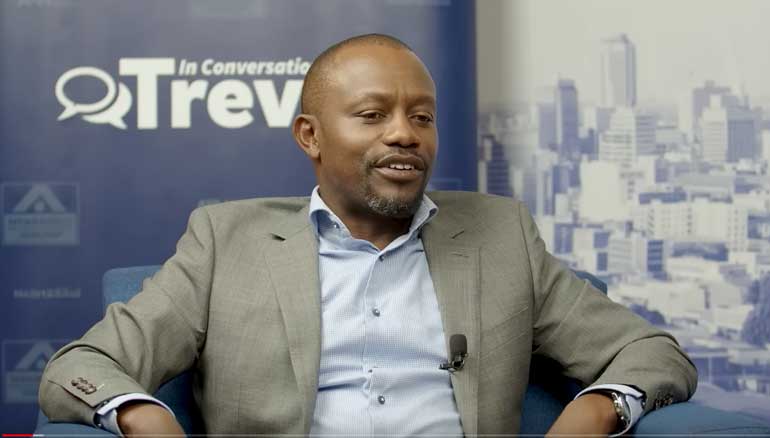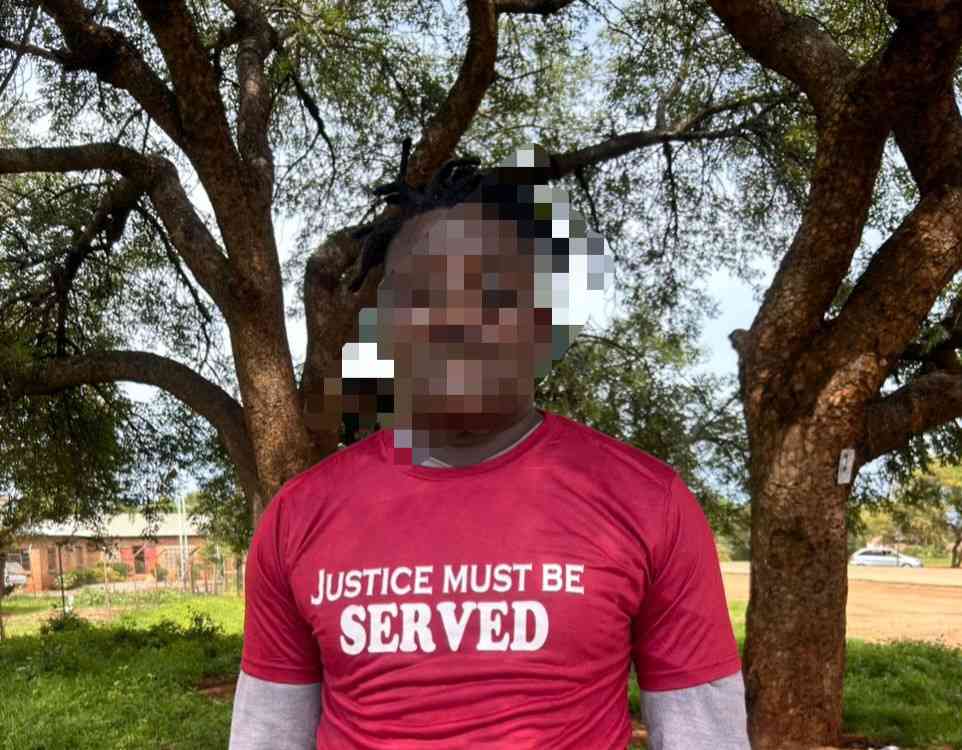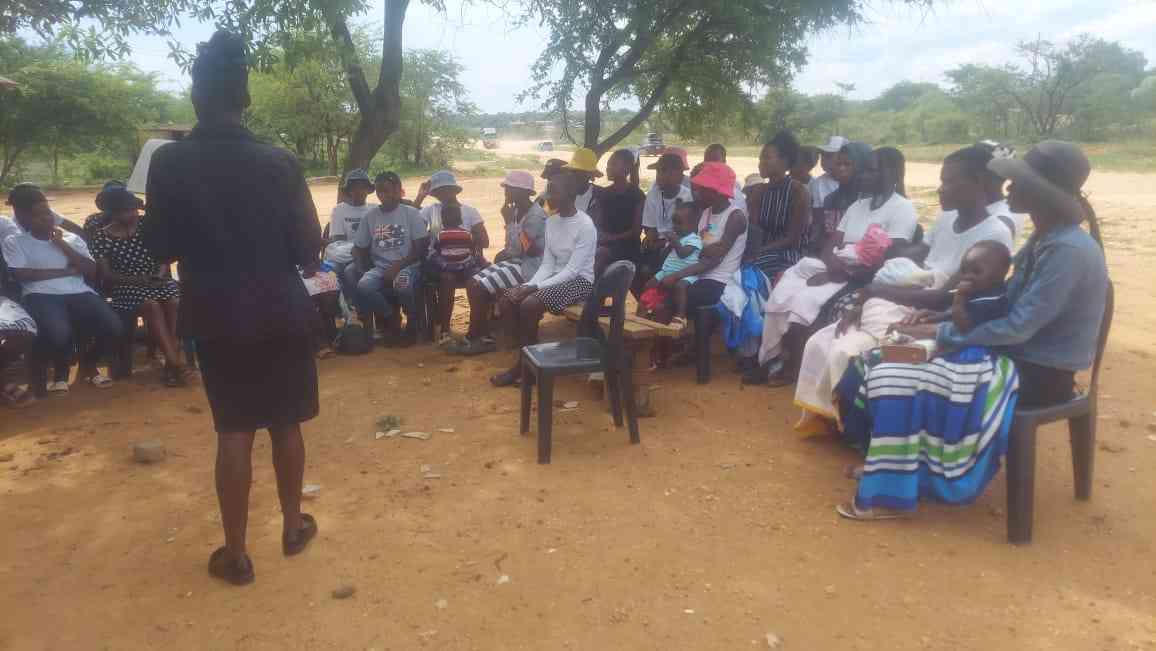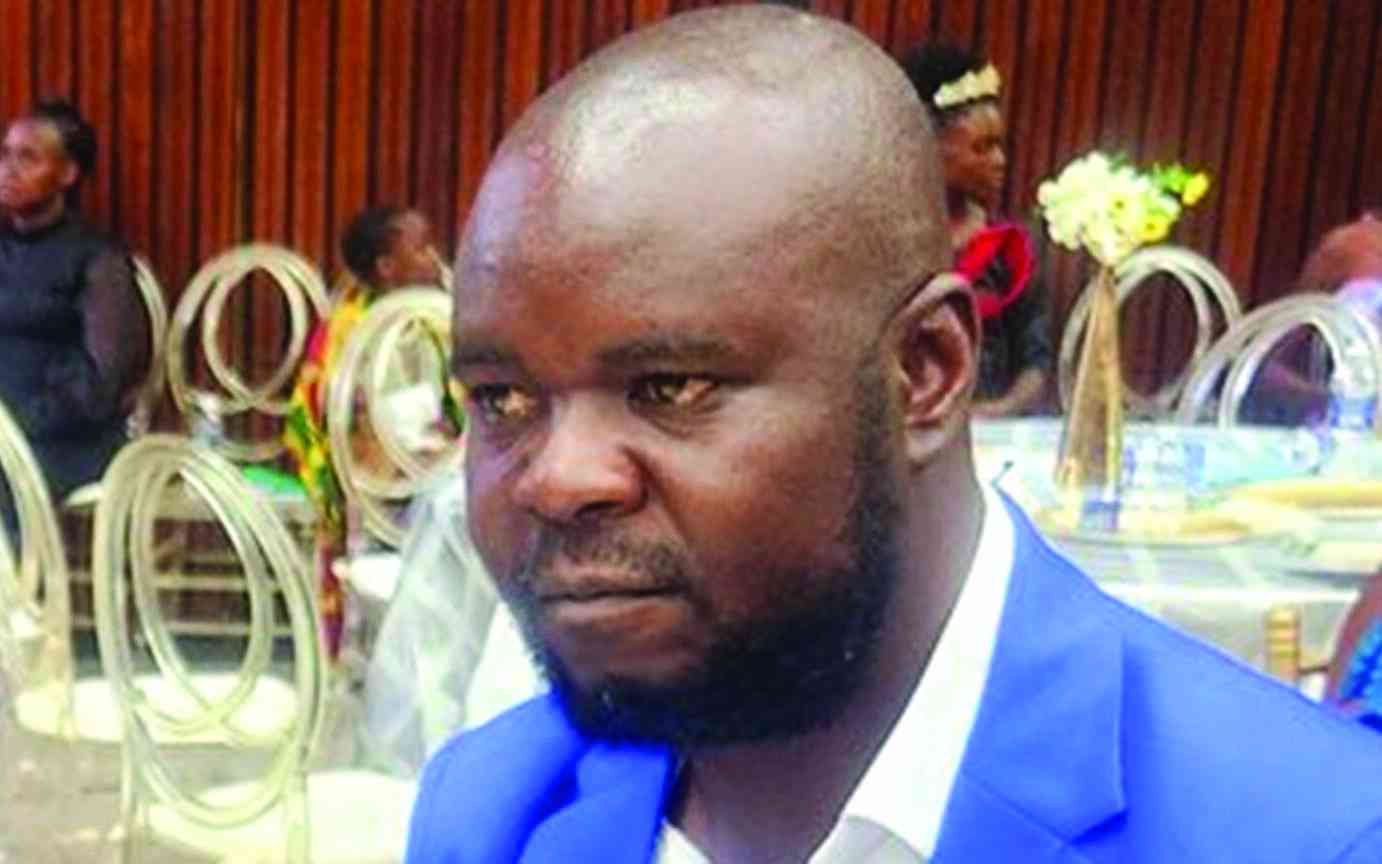
Leading Kenyan media executive Orlando Lyomu has spoken of how the media industry in the east African country remains vibrant despite challenges brought about by the outbreak of Covid-19.
Orlando Lyomu (OL), group chief executive officer and managing director of The Standard Media Group told Alpha Media Holdings chairman Trevor Ncube (TN) on the platform In Conversation with Trevor that Kenya’s media landscape was diverse and competitive.
Below are excerpts from the interview.
TN: Orlando, welcome to In Conversation With Trevor and welcome to Zimbabwe.
OL: Thank you Trevor.
TN: It is not your first time to be in Zimbabwe hey?
OL: No. It is actually my second time.
TN: Second time? Somebody tells me you have created time to go and play some golf in Victoria Falls? How was that?
- Chamisa under fire over US$120K donation
- Mavhunga puts DeMbare into Chibuku quarterfinals
- Pension funds bet on Cabora Bassa oilfields
- Councils defy govt fire tender directive
Keep Reading
OL: It was the best of both worlds. I mean the sun is way hotter down there.
TN: It is.
OL: Beautiful and natural setting in the golf course. My golf struggled.
That is a story for another day, but at the end of the day I had a fantastic time.
TN: This was your first time in Victoria Falls?
OL: Very first time.
TN: Did you love it?
OL: I loved the it. The town looks small and sleepy but inviting at the same time.
The experience at the Victoria Falls was just surreal.
I do not think there is anything close to that in Kenya in terms of the sheer enormity of the Falls. It is really beautiful.
TN: Fantastic. We have enjoyed having you at Alpha Media Holdings.
- We thought you know let us have this conversation so that you share with our guests who are all over the world what the media space is like in Kenya.
- So, you are like I said the group chief executive officer and managing director of the Standard Group.
- You were appointed in 2018. So you have been in the hot seat for what, four years?
OL: Four years this month.
TN: Oh wow. Has the seat been hot? Where have the challenges been?
OL: Let us just say, depending on the season, just like the weather some seasons it is really hot and some seasons things are calm.
I took over in an acting capacity in 2017.
I do not know whether you are aware, 2017 is when we had our elections, so the previous CEO left just immediately after the first elections.
I was taking over at a point where a rerun was in the offing and there was all this political tension.
I had worked in a media house but I had never run a media house and here you are, you are told this and it was on my birthday when I received that phone call from the chairman of the board.
He said “Orlando can you talk?” I said “Yes”. I was at the time taking an evening stroll, you know it was my birthday and I was reflecting on everything like that.
He said the Board had met as the previous CEO had resigned and the board had decided I take over in acting capacity.
He asked if I agreed. Who says no?
TN: Hahahaha.
OL: Who says no to that? So effectively I did nine months in an acting capacity and now four years substantively. It was hot in 2017.
TN: Yoh. I can imagine.
OL: Really hot. I was not used to getting calls and people complaining about this and that and why are you covering this thing in this way.
It was really a steep learning curve, but one that when I look back I say it was, you know, necessary.
TN: Prior to that Orlando, you had been in the back office as it were. You were chief operating officer and the chief financial officer.
- Then you get to be right up front? How was that change? What surprised you most about being in the hot seat?
OL: You see having been a COO and FD, there is nothing about the business I did not understand.
TN: Right.
OL: Operationally I knew where all the buttons were. Press this one you get this result.
However, I was not prepared for that outward facing responsibility.
You see you can only experience that by doing it.
The internal transition was pretty easy, but the external side was not so easy because I needed to get to know so who do I get to call in case of such problems. Who do I go to?
You know if things are getting hot how do I handle them.
Luckily, I accepted my own shortcomings very quickly.
I called a friend of mine who I would say is more senior in the industry. I said to him could we have a cup of coffee and he agreed.
I told him just so that he knows, all I needed was mentorship, he was more experienced and he had been in the business longer and I believed he could assist me navigate these mine fields in these early days.
I think I benefitted a lot from that.
TN: That is a good thing to do. To realise you have these shortcomings and you go and find someone to help you. In terms of the public facing challenges, what did you find to be the trickiest issue to navigate?
OL: To be honest, dealing with government officials.
TN: Aha. Sounds familiar.
OL: I do not know where they got my number. I thought my number was a well-kept secret!
But yes, overnight you start receiving phone calls. In fact, I remember this one case where an irate cabinet secretary called me and for almost 15 minutes did not allow me to talk…
TN: Wow.
OL: Then he hung up and I thought Orlando maybe he will think you hung up on him could you please call him back.
Then he said why are you calling me back. At that point I realised he hung up on me!
TN: Hahahahaha.
OL: I had to learn to deal with that. I have a very practical and logical approach to things. I always tell myself, is it about me or is it about the office first.
If it is about the office, I do not take it personally, even if you shout.
TN: That is interesting that you can do that. If it is personal or of it is about the office.
OL: Yes. If I was not occupying this office, one: I would not receive the phone calls, two: I would not be the punching bag. So, because it comes with the territory you have to learn to deal with it. That is what I did. I just said this is the school fees I will pay to understand how to run a media house.
TN: Describe for us Orlando, the media terrain in Kenya? What does it look like? Who are the players and that kind of stuff?
OL: The media terrain in Kenya is very vibrant starting with the mainstream structured organisations which are quite a number in both broadcast and print spaces.
Of course, you have what I would loosely call the unstructured.
We have a whole vibrant community of bloggers who also feel that they can make a buck in that space and they try and also do what I would call publishing although not regulated at the same standards we would.
So, when it comes to the structured side you have the big media organisations.
You have the Standard Group PLC, you have the Nation Media Group, you have the Royal Media, you have MediaMax.
All these are multimedia companies, television, radio and newspaper.
TN: And the Nation and the Standard Media Groups are all on the Kenyan Stock Exchange? Am I right?
OL: Yes. These two are the only listed ones. The Nation Media Group and ourselves.
The rest are private if I can put it that way. There are a lot of radio stations, I think over 170.
TN: Radio stations? Wow. I am sure there are a lot of people watching right now, all over the continent thinking the same as I said wow. 170 radio stations?
OL: 170 radio stations. I think television stations are slightly less than 100. It is a very vibrant space and that makes it very competitive.
TN: 100 television stations?
OL: Yes. It makes it very competitive actually. If you want to make money in that market you really have to be good. It is very competitive.
TN: So break down for us the Standard Media Group operations? What spaces are you in to?
OL: I will start of course with our heritage, which is the newspaper.
We actually have the oldest running newspaper in Kenya, first established in November 1902.
So it is a product that is about 120 years old. Of course, not in its current format.
There have been various iterations and designs over the time. So we are in the print business, currently running two publications, The Standard and The Nairobian.
We had a few others but during Covid we decided to put them aside and run them digitally.
Then after many years of being only print-centric we moved into television.
We do have four television stations. KTN was the first independent television station.
Before that you had the state broadcaster as the only one with a television station.
Today the four we have are 24 hour news channels. I am sure you can even get it here in Zimbabwe by streaming it.
The first one of its kind in Kenya, and I believe it did revolutionise how media houses look at news as content.
Agribusiness TV; this one is really for impact because in Africa and in Kenya in particular, a lot of families have a connection with farming or the supply chain that is connected to farming.
We felt that if we created a platform that can help farmers get better for the produce, share information that is important, in our analysis we figured out that most of the time what is lacking is information or the quality of information you are getting.
You see, if people do not understand how to get into sustainable practices then it affects their output at the end of the day.
TN: How big is that channel (Agribusiness TV)?
OL: It is quite a niche. You can access it throughout the country.
TN: Is it 24/7?
OL: It is also 24/7. Yes. Of course we try and create content or produce content that is relevant.
TN: Okay.
OL: Unfortunately, during Covid we could not do that because you need to go to the farms and you need to sit with the farmers.
So we ran thin on the content, but now we are back up because things have been opened up and we are able now to go and just keep talking to the farmers producing content that is relevant.
You have to understand, in some of these cases we are not the experts, we are just a media house, so we need to talk to the experts. I believe a farmer will believe a fellow farmer…
TN: Yes rather than a journalist!
OL: Yes, because these journalists what do they know about farming. So that is how we are looking at it.
TN: So you have the national television station, then the farming channel, Then?
OL: The news, and then the general entertainment.
TN: Radio stations?
OL: Radio stations we had three and we have just launched a fourth one.
I know it has been a busy season, though it is one of those catch 22 situations because we launched a lot of these products in 2018 in anticipation of a growth phase.
Unfortunately, Covid happened and I know Trevor you understand investments come with costs. The revenues catch up later.
So when you have a two year disruption like we did with Covid, it does really put a lot of pressure on the business.
With hindsight, it also sort of put us on a springboard, because looking at how print has suffered during Covid, then the broadcast assets actually do look like a timely investment notwithstanding the difficulties that Covid brought to us.










